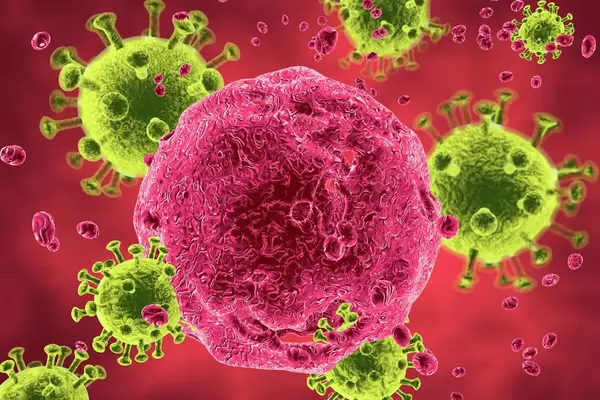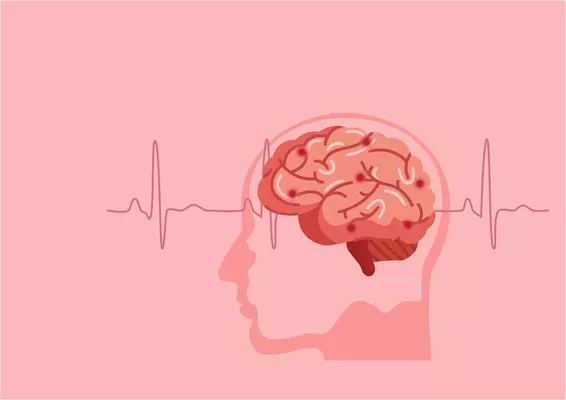Infertility genetic

If you tested your DNA with a personal genomics service like 23andMe, AncestryDNA, FamilyTreeDNA, MyHeritage or another testing company, you can learn more about your risk factors for hundreds of diseases. By clicking the button above ⬆️, you can upload your raw DNA data file and receive a personalized 250-page health report with research links that is the most comprehensive.
Approximately 15% of couples of reproductive age are affected by infertility, which is a complex disorder caused by multiple factors. Both men and women are equally responsible for the causes of infertility.
The condition where a pregnancy cannot be achieved or completed after one year of sexual intercourse without contraception is known as infertility.
Chromosomal alterations, whether numerical or structural, are a primary genetic cause of infertility in couples who cannot conceive. Along with these alterations, mutations in certain genes may also be detected at the DNA level. To determine the underlying cause, specific genetic tests may be required in all cases.
The most common genetic causes of infertility in females include Turner syndrome (either complete or mosaic monosomy X, often accompanied by streak gonads), congenital adrenal hyperplasia (CAH) caused by mutations in the CYP21A2 gene resulting in 21-hydroxylase deficiency, or less commonly, mutations in the CYP11B1 gene causing 11-beta-hydroxylase deficiency, or mutations in the HSD3B2 gene causing 3-beta-hydroxysteroid dehydrogenase type 2 deficiency. Other causes include renal cysts and diabetes syndrome (HNF1B mutations), Mayer-Rokitansky-Kuster-Hauser syndrome (congenital absence or underdevelopment of the vagina and uterus, with no known gene), mullerian duct aplasia, unilateral renal aplasia, and cervicothoracic somite dysplasia (MURCS, also known as Mayer-Rokitansky-Kuster-Hauser syndrome type II, with no known gene), androgen insensitivity (caused by AR gene mutations), gonadal dysgenesis (females with a 46,XY karyotype who may have a SRY gene mutation or simply streak gonads of unknown origin), premature ovarian failure (POF, caused by mutations in various genes), and hypogonadotrophic hypogonadism (caused by mutations in various genes).
Therefore, a comprehensive multigene panel aimed at identifying genetic causes of female infertility may include the genes AR, BMP15, BNC1, C11orf80, CYP21A2, DHEAST, DIAPH2, ERCC6, FANCM, FANCL, FIGLA, FMR1, FOXL2, FSHR, GDF9, HFM1, HSF2BP, LHB, LHCGR, MCMDC1, MCM8, MEI1, MSH4, MSH5, NOBOX, NR5A1, POF1B, PSMC3IP, REC114, SHBG, SPAG17, SRD5A1, SRD5A2, STAG3, STX2, SYCE1, TUBB8, WEE2, and XRCC2.
Although hormonal dosages are a more straightforward method for identifying hypogonadotropic hypogonadism, genetic screening may not initially prioritize this condition. However, current research has identified a series of genes involved in the pathogenesis of hypogonadotropic hypogonadism, including ANOS1, CHD7, DUSP6, FEZF1, FGF17, FGF8, FGFR1, FLRT3, FMR1, FSHB, GNRH1, GNRHR, HS6ST1, IL17RD, KISS1, KISS1R, LHB, NDNF, NELF, PROK2, PROKR2, SEMA3A, SPRY4, TAC3, TACR3, and WDR11.
The most common genetic causes of male infertility are congenital absence of vas deferens (CBAVD or CAVD), which is caused by two mutations in the cystic fibrosis gene, Klinefelter syndrome, Y chromosome microdeletions, isodicentric Y chromosome, Y chromosome inversions, males with a 46,XX karyotype, primary ciliary dyskinesia, and hypogonadotropic hypogonadism. These conditions may result in either normal or reduced fertility.
A screening panel for male infertility's genic causes may consist of genes that also contribute to meiotic arrest, such as AR, AZF, CATSPER1, CFTR, DEFB126, DEFB128, DNAH17, MAATS1, FSHR, LHCGR, MSH4, MSH5, SYCP2, TTC29, and XRCC2.
Follow the link of the selected polymorphism to read a brief description of how the selected polymorphism affects Infertility and miscarriage and see a list of existing studies.
SNP polymorphisms related to the topic Infertility and miscarriage:
| rs3129878 | There is an increased risk of azoospermia (lack of sperm) and therefore male infertility. |
| rs4680 | The study showed a 10% increase in total plasma homocysteine (tHcy) |
| rs6025 | The rs6025(A) allele encodes a mutation known as the Leiden mutation, R506Q, an 11.4-fold increased risk of venous thromboembolism. |
| rs9939609 | The common variant rs9939609 of the FTO gene, associated with fat mass and obesity, is associated with fat cell lipolysis as well as early onset of extreme obesity. Studies show that carriers of the risk allele A demonstrate significantly greater weight loss on a fat-restricted diet than non-carriers. |
| rs1053023 | STAT3 polymorphism is associated with idiopathic habitual miscarriages. |
| rs35576928 | Protamine gene polymorphism is associated with asthenozoospermia in men. |
| rs1805087 | Moderate risk factor for hyperhomocysteinaemia. A factor that increases the body's need for folic acid and vitamin B12. |
| rs360717 | Interleukin-18 promoter polymorphism increases the risk of idiopathic habitual miscarriage. |
| rs12097821 | Increased risk of idiopathic male infertility and non-obstructive azoospermia. |
| rs1799963 | G20210A mutation of the prothrombin F2 gene. 6.74-fold risk of thrombosis |
| rs1799983 | Decreases the activity of the NOS3 gene and may reduce the efficiency of the methylation process. Also associated with increased risk markers for cardiovascular problems, such as total cholesterol and low-density lipoprotein (LDL) levels, and with an increased risk of high blood pressure, especially in pregnant women. |
| rs17880664 | Antioxidant enzymes and CAT binding are associated with the risk of idiopathic habitual miscarriage. |
| rs2293275 | A polymorphism of the chorionic gonadotropin luteinising hormone receptor gene (rs2293275) is associated with polycystic ovary syndrome. |
| rs955988 | 1.25 times higher risk of non-obstructive azoospermia in men. |
| rs187238 | |
| rs498422 | |
| rs763780 | |
| rs1048943 | |
| rs1052133 | |
| rs2010963 | |
| rs2070744 | |
| rs2232365 | |
| rs2275913 | |
| rs2301365 | |
| rs2477686 | |
| rs3025039 | |
| rs3918188 | |
| rs4646903 | |
| rs6068020 | |
| rs6505162 | |
| rs6836703 | |
| rs7859844 | |
| rs9814870 | |
| rs10122243 | |
| rs10270417 | |
| rs10841496 | |
| rs10842262 | |
| rs10910078 | |
| rs10917151 | |
| rs113588187 | |
| rs138993181 | |
| rs143445068 | |
| rs146350366 | |
| rs183453668 | |
About The Author
Li DaliLi Dali, a National Foundation for Outstanding Youth Fund recipient, is a researcher at the School of Life Sciences in East China Normal University. He earned his PhD in genetics from Hunan Normal University in 2007 and conducted collaborative research at Texas A&M University during his doctoral studies. Li Dali and his team have optimized and innovated gene editing technology, leading to the establishment of a world-class system for constructing gene editing disease models.


